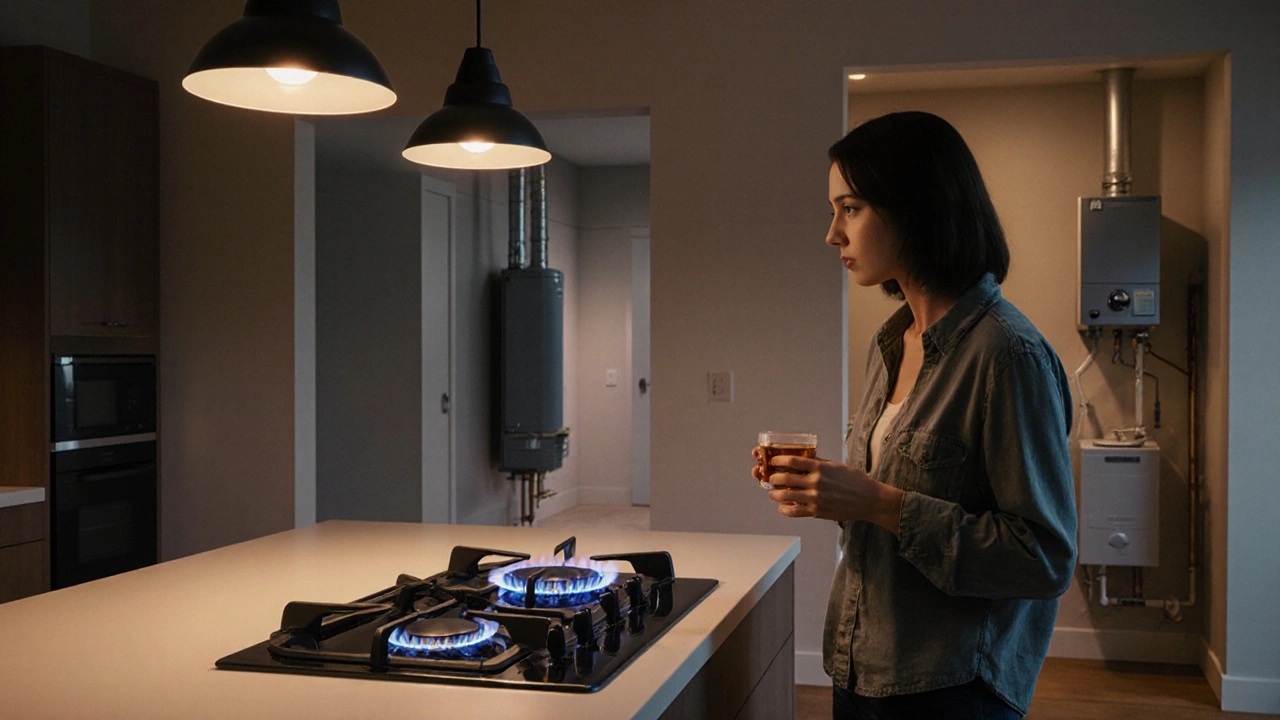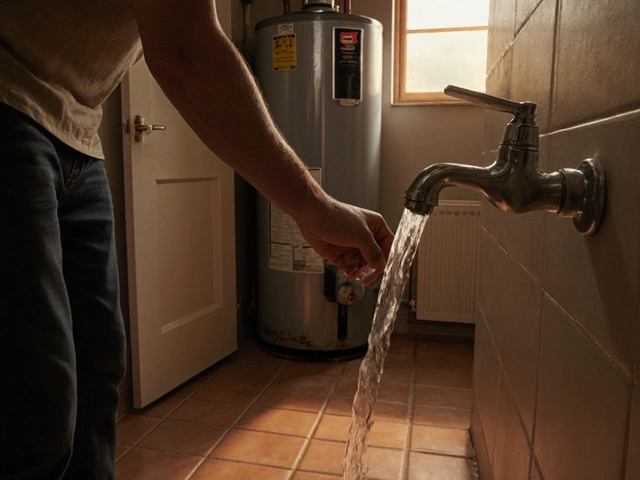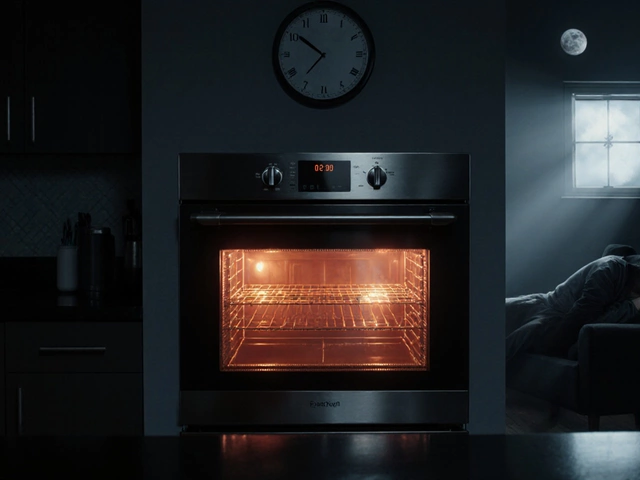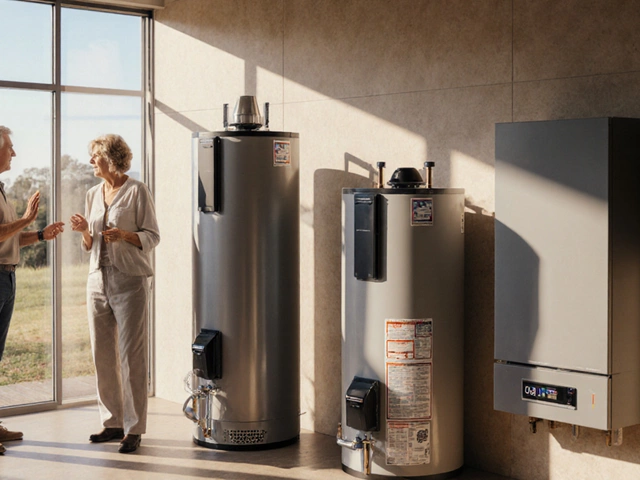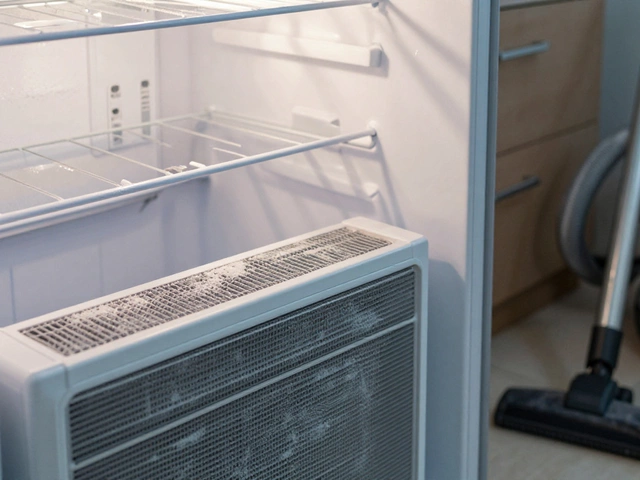Gas Appliance Inspection Scheduler
Select Your Appliance Type
Recommended Inspection Schedule
Inspection Frequency Table
| Appliance | Check Interval | Warning Signs |
|---|---|---|
| Gas Furnace | Yearly (before winter) | Weak flame, frequent cycling, pilot light won’t stay lit |
| Gas Water Heater | Yearly (spring/summer) | Rusty water, strange noises, pilot light flickering |
| Gas Stove | Every 2–3 years | Uneven flame, yellow tips, gas odor when igniting |
| Gas Dryer | Every 2 years | Long drying times, lint buildup, strong gas smell |
| Gas Boiler | Annual (before heating season) | Low pressure, noisy operation, water leaks |
| Gas Fireplace | Every 2 years | Blue flame turning yellow, soot buildup, gas smell |
Living with gas‑powered devices is convenient, but it also comes with a hidden risk: faulty equipment can leak combustible gas or produce dangerous carbon monoxide. The question most homeowners ask is simple - how often should gas appliances be checked? Below you’ll find the exact intervals, the legal background, warning signs, and a practical maintenance checklist so you can keep your home safe without guessing.
Key Takeaways
- Most residential gas appliances need a professional safety check at least once a year.
- High‑risk units like furnaces and water heaters should be inspected before the heating season.
- Visible wear, unusual smells, or strange noises mean you need an immediate check, regardless of the schedule.
- A standard inspection covers gas pressure, flame quality, venting, and the integrity of safety devices.
- Keeping records of each service helps with warranty claims and resale value.
Why Regular Checks Matter
Gas‑fired appliances operate under pressure, and even a minor leak can evolve into a fire or explosion. Moreover, incomplete combustion produces carbon monoxide (CO), a colorless, odorless gas that can be fatal at high levels. Regular inspections catch wear‑and‑tear before it becomes hazardous, ensuring the appliance runs efficiently and your utility bills stay low.
Legal and Insurance Requirements
In many regions, building codes and insurance policies stipulate a minimum inspection frequency. For example, the United Kingdom’s Gas Safety (Installation and Use) Regulations mandate a yearly check by a Gas Safe registered engineer for any landlord‑owned gas appliance. In the United States, most state fire codes recommend an annual service for furnaces and water heaters, and many insurers will refuse a claim if a required inspection is missing. Always verify the exact rule that applies to your locality, but a yearly baseline keeps you on the safe side.
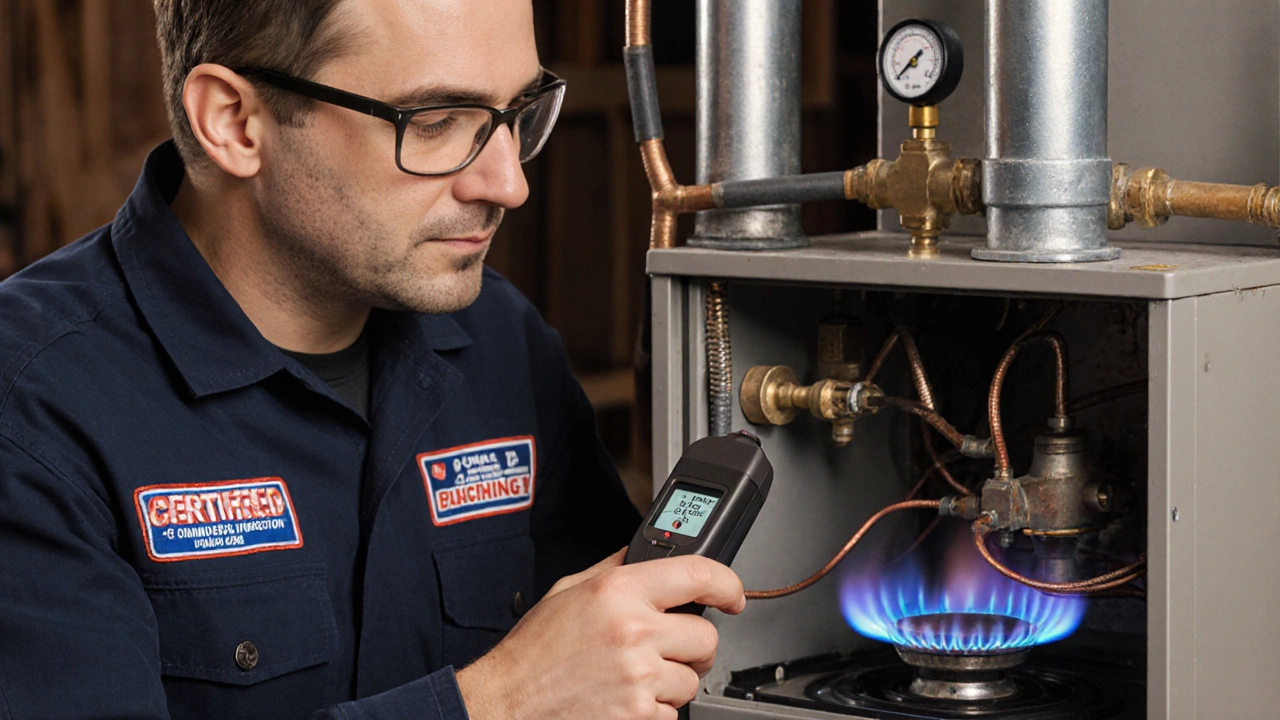
Typical Inspection Intervals by Appliance Type
| Appliance | Standard Check Interval | Typical Warning Signs |
|---|---|---|
| Gas furnace - central heating unit that burns natural gas | Yearly (preferably before winter) | Weak flame, frequent cycling, pilot light won’t stay lit |
| Gas water heater - storage tank that heats water using gas | Yearly (spring or early summer) | Rusty water, strange noises, pilot light flickering |
| Gas stove - cooktop with burners fueled by natural gas or propane | Every 2‑3years (or when you notice performance drop) | Uneven flame, yellow tips, gas odor when igniting |
| Gas dryer - clothes dryer that uses gas for heating | Every 2years | Long drying times, lint buildup near vent, strong gas smell |
| Gas boiler - system that supplies hot water and central heating | Annual (preferably before heating season) | Low pressure, noisy operation, water leaks |
| Gas fireplace - decorative heating unit that burns gas | Every 2years | Blue flame turning yellow, soot buildup, gas smell |
What a Professional Inspection Covers
A certified technician follows a systematic checklist. Below is a condensed version you can use to verify that the service was thorough.
- Confirm gas supply pressure is within manufacturer specifications.
- Inspect the burner assembly for corrosion, blockages, or misalignment.
- Examine the flame pattern - a stable blue flame indicates proper combustion.
- Test safety devices: thermocouple, pressure relief valve, and any built‑in CO detectors.
- Check venting and flue pathways for cracks, obstructions, or excess condensation.
- Verify that all connections are tight and that there are no leaks using a combustible‑gas detector.
- Review the appliance’s control board or thermostat for correct operation.
For homeowners, you don’t need to perform all these steps yourself, but knowing them helps you ask the right questions and spot red flags if a technician skims over a part.
DIY Spot‑Checks You Can Do Between Services
Even if you rely on a professional once a year, a quick visual and sensory check each month can catch early problems.
- Look for rust or moisture around joints and vent pipes.
- Sniff for gas - a faint ‘rotten egg’ odor near burners or connections means a leak.
- Listen for unusual sounds such as hissing, rattling, or whistling.
- Check the flame - it should be blue with a steady tip; yellow indicates incomplete combustion.
- Test CO detectors monthly by pressing the test button.
If anything seems off, schedule a professional inspection right away rather than waiting for the next calendar date.
Scheduling Tips to Avoid the Rush
Winter and summer are the busiest times for gas‑appliance technicians because homeowners want their heating ready for cold snaps or their water heaters serviced before vacation season. To secure a convenient slot:
- Book at least 4‑6weeks in advance for a furnace or boiler.
- Prefer early autumn (September‑October) for heating appliances and early spring (March‑April) for water heaters.
- Combine multiple appliances into one service call if they’re all due - many technicians offer bundled pricing.
Record‑Keeping and Documentation
Keeping a maintenance log does more than just prove you’ve met legal requirements. It helps you track performance trends and can increase resale value. A good log entry includes:
- Date of service
- Name and license number of the technician
- Work performed (e.g., cleaned burner, replaced pressure valve)
- Any parts replaced with part numbers
- Recommendations for future work
Store a digital copy on your phone or cloud drive and keep a printed copy near the appliance for quick reference.
When to Call an Emergency Service
Some situations demand immediate attention, even outside regular business hours:
- Strong smell of gas that doesn’t dissipate after ventilating.
- Sudden loss of flame on a furnace or boiler.
- CO alarm sounds - evacuate the house and call emergency services before anything else.
- Visible damage to gas lines or connectors.
Do not attempt to fix these yourself. Shut off the main gas valve if you can do so safely, and contact a certified emergency plumber or gas technician right away.
Frequently Asked Questions
How often should a gas furnace be inspected?
A gas furnace should receive a professional safety check at least once a year, ideally before the heating season begins. This timing lets the technician clean the burner, verify flame quality, and test safety valves when the unit will be used most.
Can I perform my own gas appliance inspection?
You can do basic spot‑checks - look for leaks, listen for strange noises, and verify the flame color. However, a full inspection requires specialized tools (combustible‑gas detectors, pressure gauges) and a certified technician’s expertise. Most jurisdictions also require a licensed professional for the official safety check.
What are the legal consequences of skipping the yearly check?
Skipping required inspections can void insurance coverage, breach local building codes, and expose you to liability if a gas leak causes damage or injury. In some areas, landlords can face fines or prosecution for non‑compliance.
Is there a difference between a maintenance service and a safety check?
A safety check focuses on preventing hazards - gas leaks, CO production, and faulty safety devices. Maintenance may include cleaning, performance tuning, and part replacement to improve efficiency. Most professionals combine both in an annual visit, but you can request a pure safety inspection if desired.
Do carbon monoxide detectors replace gas appliance inspections?
No. CO detectors alert you to dangerous levels after a problem has occurred, while a proper inspection catches the root cause before harmful gases are released. Use both: detectors for real‑time protection and regular inspections for prevention.
